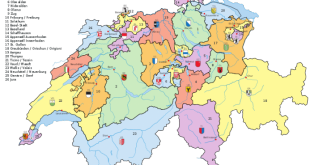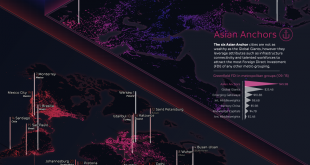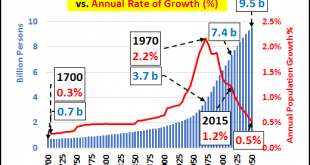In a recent interview with Mises Weekends, Claudio Grass examined some of the advantages of the Swiss political system, and how highly decentralized politics can bring with it great economic prosperity, more political stability, and a greater respect for property rights. Since the Swiss political system of federalism is itself partially inspired by 19th-century American federalism, the average American can...
Read More »If American Federalism Were Like Swiss Federalism, There Would Be 1,300 States
Authored by Ryan McMaken via The Mises Institute, In a recent interview with Mises Weekends, Claudio Grass examined some of the advantages of the Swiss political system, and how highly decentralized politics can bring with it great economic prosperity, more political stability, and a greater respect for property rights. Since the Swiss political system of federalism is itself partially inspired by 19th-century American federalism, the average American can usually imagine in...
Read More »The Megacity Economy: How Seven Types Of Global Cities Stack Up
Back in 1950, close to 30% of the global population lived in cities. As Visual Capitalist's Jeff Desjardins notes, that has shifted dramatically, and by 2050, a whopping 70% of people will live in urban areas – some of which will be megacities housing tens of millions of people. This trend of urbanization has been a boon to global growth and the economy. In fact, it is estimated today by McKinsey that the 600 top urban centers contribute a whopping 60% to the world’s total...
Read More »Policy Makers – Like Generals – Are Busy Fighting The Last War
Submitted by Chris Hamilton via Econimica blog, The Maginot Line formed France’s main line of defense on its German facing border from Belgium in the North to Switzerland in the South. It was constructed during the 1930s, with the trench-based warfare of World War One still firmly in the minds of the French generals. The Maginot Line was an absolute success…as the Germans never seriously attempted to attack it’s...
Read More » Swiss Economicblogs.org
Swiss Economicblogs.org



